Filter by
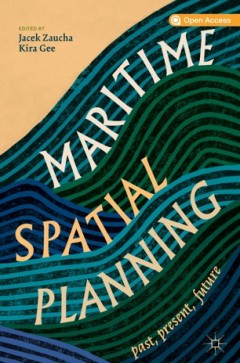
Maritime spatial planning : past, present, future
Maritime or marine spatial planning has gained increasing prominence as an integrated, common-sense approach to promoting sustainable maritime development. A growing number of countries are engaged in preparing and implementing maritime spatial plans: however, questions are emerging from the growing body of MSP experience. How can maritime spatial planning deal with a complex and dynamic enviro…
- Edition
- -
- ISBN/ISSN
- 9783319986968
- Collation
- xxxvii, 477p. : ill.
- Series Title
- -
- Call Number
- 333.9164 MAR m

eIoT : the development of the energy internet of things in energy infrastructure
This open access book explores the collision between the sustainable energy transition and the Internet of Things (IoT). In that regard, this book’s arrival is timely. Not only is the Internet of Things for energy applications, herein called the energy Internet of Things (eIoT), rapidly developing but also the transition towards sustainable energy to abate global climate is very much at the f…
- Edition
- -
- ISBN/ISSN
- 9783030104276
- Collation
- xxviii, 160p. : ill
- Series Title
- -
- Call Number
- 333.79 MUH e
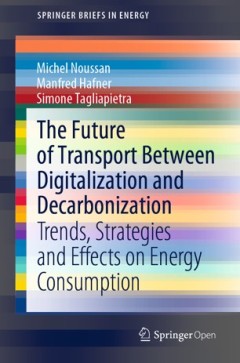
The Future of transport between digitalization and decarbonization : trends, …
Energy systems are rapidly transitioning towards decarbonization, thanks in part to innovative digital technologies and changing mobility demands. This open access book examines the decarbonization and digitalization transformation in the transport sector, with a particular focus on energy consumption. By studying historical trends and outlining future scenarios, the authors illustrate the evol…
- Edition
- -
- ISBN/ISSN
- 9783030379667
- Collation
- xv, 112p. : ill.
- Series Title
- -
- Call Number
- 628.532 NOU f
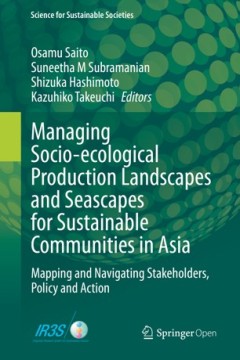
Managing socio-ecological production landscapes and seascapes for sustainable…
This open access book presents up-to-date analyses of community-based approaches to sustainable resource management of SEPLS (socio-ecological production landscapes and seascapes) in areas where a harmonious relationship between the natural environment and the people who inhabit it is essential to ensure community and environmental well-being as well as to build resilience in the ecosystems tha…
- Edition
- -
- ISBN/ISSN
- 9789811511332
- Collation
- x, 179p. : ill.
- Series Title
- -
- Call Number
- 333.7 MAN m
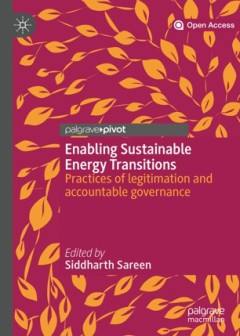
Enabling sustainable energy transitions : practices of legitimation and accou…
This open access book reframes sustainable energy transitions as being a matter of resolving accountability crises. It demonstrates how the empirical study of several practices of legitimation can analytically deconstruct energy transitions, and presents a typology of these practices to help determine whether energy transitions contribute to sustainability. The real-world challenge of climat…
- Edition
- -
- ISBN/ISSN
- 9783030268916
- Collation
- xxi, 168p. : ill.
- Series Title
- -
- Call Number
- 333.79 ENA e
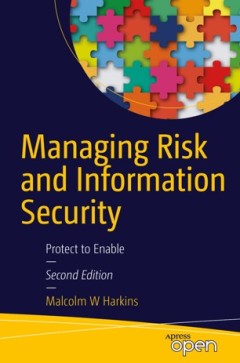
Managing risk and information security : protect to enable
Examine the evolving enterprise security landscape and discover how to manage and survive risk. While based primarily on the author’s experience and insights at major companies where he has served as CISO and CSPO, the book also includes many examples from other well-known companies and provides guidance for a management-level audience. Managing Risk and Information Security provides thoug…
- Edition
- second edition
- ISBN/ISSN
- 9781484214558
- Collation
- xxvii, 187p. : ill.
- Series Title
- -
- Call Number
- 005.8 HAR m
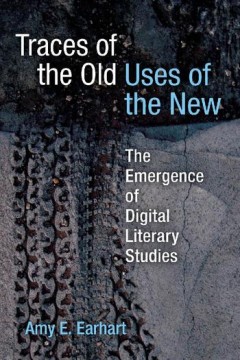
Traces of the old, uses of the new : the emergence of digital literary studies
Digital Humanities remains a contested, umbrella term covering many types of work in numerous disciplines, including literature, history, linguistics, classics, theater, performance studies, film, media studies, computer science, and information science. In Traces of the Old, Uses of the New: The Emergence of Digital Literary Studies, Amy Earhart stakes a claim for discipline-specific history…
- Edition
- -
- ISBN/ISSN
- 9780472072781
- Collation
- ix, 161p. : ill.
- Series Title
- -
- Call Number
- 802.85 EAR t
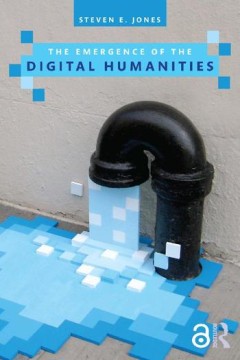
The emergence of the digital humanities
In The Emergence of the Digital Humanities, Steven E. Jones examines this shift in our relationship to digital technology and the ways that it has affected humanities scholarship and the academy more broadly. Based on the premise that the network is now everywhere rather than merely "out there," Jones links together seemingly disparate cultural events—the essential features of popular social …
- Edition
- -
- ISBN/ISSN
- 9780415635516
- Collation
- vii, 212p. : ill.
- Series Title
- -
- Call Number
- 001.30285 JON e
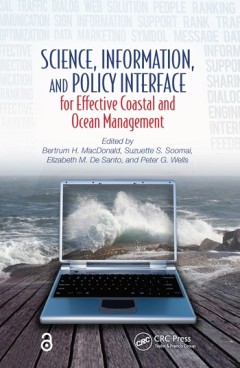
Science, information, and policy interface for effective coastal and ocean ma…
Science, Information, and Policy Interface for Effective Coastal and Ocean Management presents a wealth of knowledge that enhances current best practices to achieve more effective communication and use of marine environmental information. Useful to all major groups in the policy-making process, from senior policy- and decision-makers to practitioners in coastal and ocean management, it helps to…
- Edition
- -
- ISBN/ISSN
- 9781498731706
- Collation
- xxxvii, 474p. : ill.
- Series Title
- -
- Call Number
- 333.9164 SCI s
Libraries driving access to knowledge
This book is a must for librarians with international interest in access to knowledge. It includes a collection of 15 chapters written by authors from all over the world and covers different approaches to the vital role of libraries driving access to knowledge. There are chapters that offer solutions and ideas to enable libraries to become the knowledge engine in society. Other chapters discuss…
- Edition
- -
- ISBN/ISSN
- 9783110263121
- Collation
- 402p. : illustrations ; 24 cm.
- Series Title
- IFLA publications, 151
- Call Number
- 021.2 LAU l
 Computer Science, Information & General Works
Computer Science, Information & General Works  Philosophy & Psychology
Philosophy & Psychology  Religion
Religion  Social Sciences
Social Sciences  Language
Language  Pure Science
Pure Science  Applied Sciences
Applied Sciences  Art & Recreation
Art & Recreation  Literature
Literature  History & Geography
History & Geography